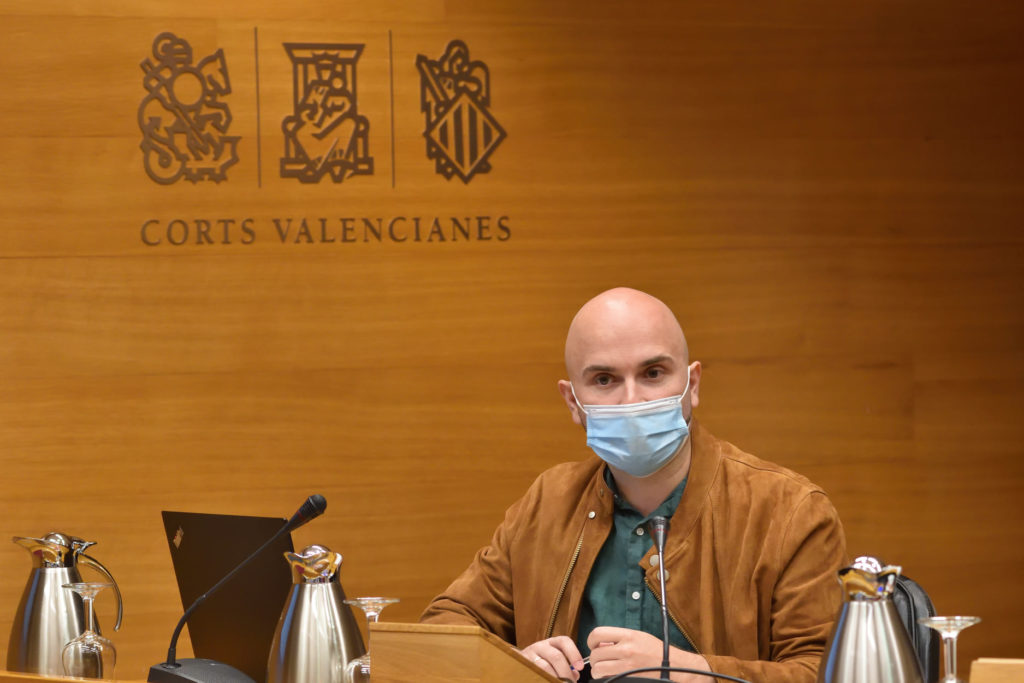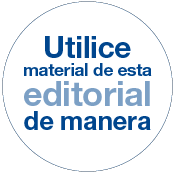If you are interested in the topics of cinema, literature, fashion, accessibility and inclusion, you might want to check out the talks and consultancy services offered by Miguel Ángel Font Bisier, a Spanish filmmaker, writer and lecturer. He has been giving lectures and talks in various venues and events, both in Spain and abroad, sharing his insights and experiences on these fields. Here is a list of some of his past and upcoming talks:

– Lecture «Frammenti di discorsi amorosi», in Rome (June 2009): A lecture on Miguel’s italian short film Single club, exploring the different facets of love and desire through cinema and literature.
– Talk on fantastic cinema and literature at Librería Bartleby (February 2014): A talk on the origins, evolution and characteristics of the fantastic genre in cinema and literature, with examples from classic and contemporary works.
– Talk on fashion film at Universidad Cardenal Herrera CEU (April 2015): A talk on the emerging genre of fashion film, its history, aesthetics and potential as a creative and communicative tool.
– Talk New Faces Modeling Agency Carmen Durán (December 2015): A talk on the role of models in fashion film, their skills and challenges, and the opportunities offered by this new medium.
– Talk on cinema and multisensoriality at Las Naves (July 2016): A talk on the concept of multisensoriality in cinema, how it can enhance the cinematic experience and create more inclusive and accessible films.
– XMILE talk, accessibility and the 5 senses at Cificom 2016 (October 2016): A talk on XMILE, a project that aims to create films that can be enjoyed by people with different sensory abilities, using subtitles, audio description, sign language, touch and smell.
– Talk Fantastic, Horror and Accessible Cinema at FNAC Valencia (October 2016): A talk on how the fantastic and horror genres can be adapted to create accessible films for people with sensory disabilities, using XMILE as an example.

– A Smile for the Senses, a multi-sensory talk at the Horrifyingly Dead Short Film Festival (November 2016): A talk that combines cinema, music, touch and smell to create a multi-sensory experience for the audience, based on XMILE.
– Cinema with your eyes closed, multisensory talk at the Molins de Rei Film Festival (November 2016): A talk that invites the audience to close their eyes and enjoy a film through sound, touch and smell, using XMILE short film as a case study.
– Talk at Catholic University on accessible cinema (March 2017): A talk on the importance of making cinema accessible for people with sensory disabilities, the challenges and benefits of doing so, and the examples of XMILE’s films.
– Talk for Red Proyecto Social on inclusive art (May 2017): A talk on how art can be a tool for social inclusion, especially for people with disabilities, and how XMILE film aim to achieve that goal.
– Talk at the Festival Ciutadà Compromés at the University of Valencia (November 2017): A talk on how cinema can contribute to social change and awareness, focusing on the themes of accessibility, diversity and inclusion.
– Talk on cinema and deafblindness at Las Naves (February 2018): A talk on how cinema can be adapted for people who are deafblind, using XMILE as an example.

– Talk about XMILE and Blues Time at Railowsky Bookstore (June 2018): A talk on XMILE and Blues Time, a musical drama made according to Inclusive Cinema’s principles.
– Talk and presentation of the book XMILE: Cinema of Universal Design at the Ámbito Cultural of El Corte Inglés (January 2019): A talk and presentation of the book that collects the experiences and results of XMILE, with testimonies from collaborators, experts and beneficiaries.

– Accessible cinema talk at the La Misericordia Center (February 2019): A talk on how to make cinema accessible for people with sensory disabilities, using Blues Time as an example.
– Talk at Escola Gavina for young people in 3rd and 4th ESO Grade (February 2019): A talk aimed at raising awareness among young students about the importance of accessibility and inclusion in art and culture.
– Lecture at the Master in Creative and Humanistic Translation of the University of Valencia (February 2019): A lecture on how to translate and adapt films for people with sensory disabilities, using XMILE and Blues Time as examples.
– Round table at Escola Gavina on accessibility and inclusion (May 2019): A round table discussion with other experts and professionals on the topics of accessibility and inclusion in art and culture.

– Accessibility and career path talk in Piura, Peru (August 2019): A talk on how accessibility has influenced his career path as a filmmaker and lecturer, and how it can inspire other people to pursue their dreams.
– Talk on cultural accessibility at the Metropolitan Museum of Lima, Peru (August 2019): A talk on how to make cultural spaces and events accessible for people with sensory disabilities.
– Presentation on the Expert Degree in Inclusive Communication from the online platform of Cardenal Herrera CEU University (June 2020): A presentation on the online course that teaches how to create inclusive and accessible communication products and services, using XMILE’s films as examples.

– Talk on accessibility at the Cinemabeiro Festival in La Coruña (October 2020): A talk on how to make films more accessible for people with sensory impairments, with examples from Miguel’s work, such as XMILE.
– Talk «Let’s Talk About Inclusive Cinema» at the CEFIRE specific to inclusive education (October 2020): A talk on how to use cinema as a pedagogical tool for inclusive education, and how to adapt films to different learning styles and needs, with examples from projects such as Blues Time.
– Talk at Cardenal Herrera CEU University on inclusive filmmaking (November 2020): A talk on the concept and principles of accessible filmmaking, a new approach that integrates accessibility into the creative process from the beginning (the script), with examples of techniques and tools such as binaural sound or haptic devices.
– Talk for Requena City Council on the creation of inclusive literature and new technologies applied to the access of visually impaired people to culture (December 2020): A talk on how literature can be made more accessible and inclusive by using different formats and media, such as audiobooks, podcasts, graphic novels, and interactive stories, with examples from my own literary works, such as Journey to the Heart of a Painting.
– Lecture for the ERI-Lectura research group of the University of Valencia on inclusive literary production (April 2021): A lecture on the theoretical and practical aspects of creating literature that is accessible and inclusive for people with different abilities and preferences, with examples of models and frameworks for evaluating the accessibility and inclusiveness of literary works, such as the Universal Design for Learning principles.
 – Talk for the TRAMA group of the Universitat Jaume I of Castellón «From Accessible Filmmaking to Inclusive Cinema – A Collaborative Leap» (May 2021): A talk on the evolution and future of accessible filmmaking and inclusive cinema, and how they can foster social change and empowerment for people with disabilities, with examples of collaboration and co-creation among filmmakers, accessibility experts, and audiences with diverse needs.
– Talk for the TRAMA group of the Universitat Jaume I of Castellón «From Accessible Filmmaking to Inclusive Cinema – A Collaborative Leap» (May 2021): A talk on the evolution and future of accessible filmmaking and inclusive cinema, and how they can foster social change and empowerment for people with disabilities, with examples of collaboration and co-creation among filmmakers, accessibility experts, and audiences with diverse needs.
– Talk at the Valencia Startup Market (October 2021): A presentation of miCINEinclusivo, a company that offers accessibility and inclusion services for audiovisual content creators and distributors, such as audio description, subtitles, sign language interpretation, haptic feedback, and immersive sound for films, TV shows, documentaries, web series, video games, and more.
– Panel «Accessibility in the Audiovisual Industry» for the Association of Audiovisual Producers of Córdoba, Argentina (October 2021): A panel discussion on how accessibility can improve the quality and reach of audiovisual products, and how it can create new opportunities and markets for producers, with examples of challenges and barriers that still exist
for making audiovisual content more accessible and inclusive.
 – Talk «Journey to the Heart of a Painting: Inclusive Artistic Creation» in Digital Jove (November 2021): A talk on how digital technologies can enable new forms of artistic expression and communication that are more accessible and inclusive for people with different abilities and backgrounds, with examples of artistic projects that use digital media to create multisensory experiences, such as XMILE.
– Talk «Journey to the Heart of a Painting: Inclusive Artistic Creation» in Digital Jove (November 2021): A talk on how digital technologies can enable new forms of artistic expression and communication that are more accessible and inclusive for people with different abilities and backgrounds, with examples of artistic projects that use digital media to create multisensory experiences, such as XMILE.
– Screening of XMILE followed by a conversation with Spanish film director Miguel Ángel Font Bisier at Boston University (March 2023): A screening of XMILE, a short film that uses audio description, subtitles, sign language, and haptic feedback to create an immersive and inclusive experience for the audience, followed by a conversation with Miguel Ángel Font Bisier, the project’s creator.
– Film and accessibility lecture at Boston University (March 2023): A lecture on the concept and practice of Inclusive Cinema, and how they can be applied to different projects, with examples of films that use accessibility as a creative and artistic element, such as Blues Time, XMILE, etcetera.
– Talk at the audiovisual accessibility workshop of the Escuela Nacional de Experimentación y Realización Cinematográfica (ENERC), Argentina’s national film school (July 2023): A talk on how to make films more accessible and inclusive for people with sensory impairments,
using different techniques and tools, with examples of best practices and standards for audiovisual accessibility.
– Roundtable discussion and closing session on art, film, and disability for the State Center for Personal Autonomy and Technical Assistance (Ceapat – Imserso), a public institution that promotes the autonomy and inclusion of people with disabilities in Spain (October 2023): A roundtable discussion and closing session on how art and film can be used as tools for social awareness and advocacy for disability rights, with examples of Miguel’s personal and professional journey as an artist and filmmaker with a visual impairment.

If you want to know more about Miguel Ángel Font Bisier and his talks and consultancy services, you can visit his website.








